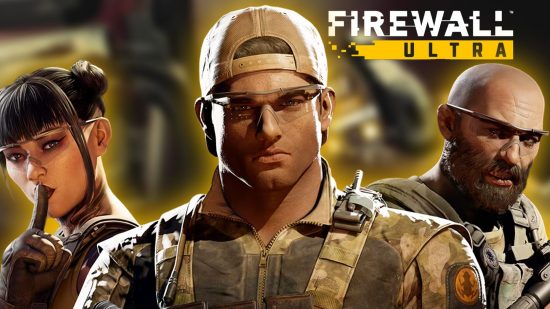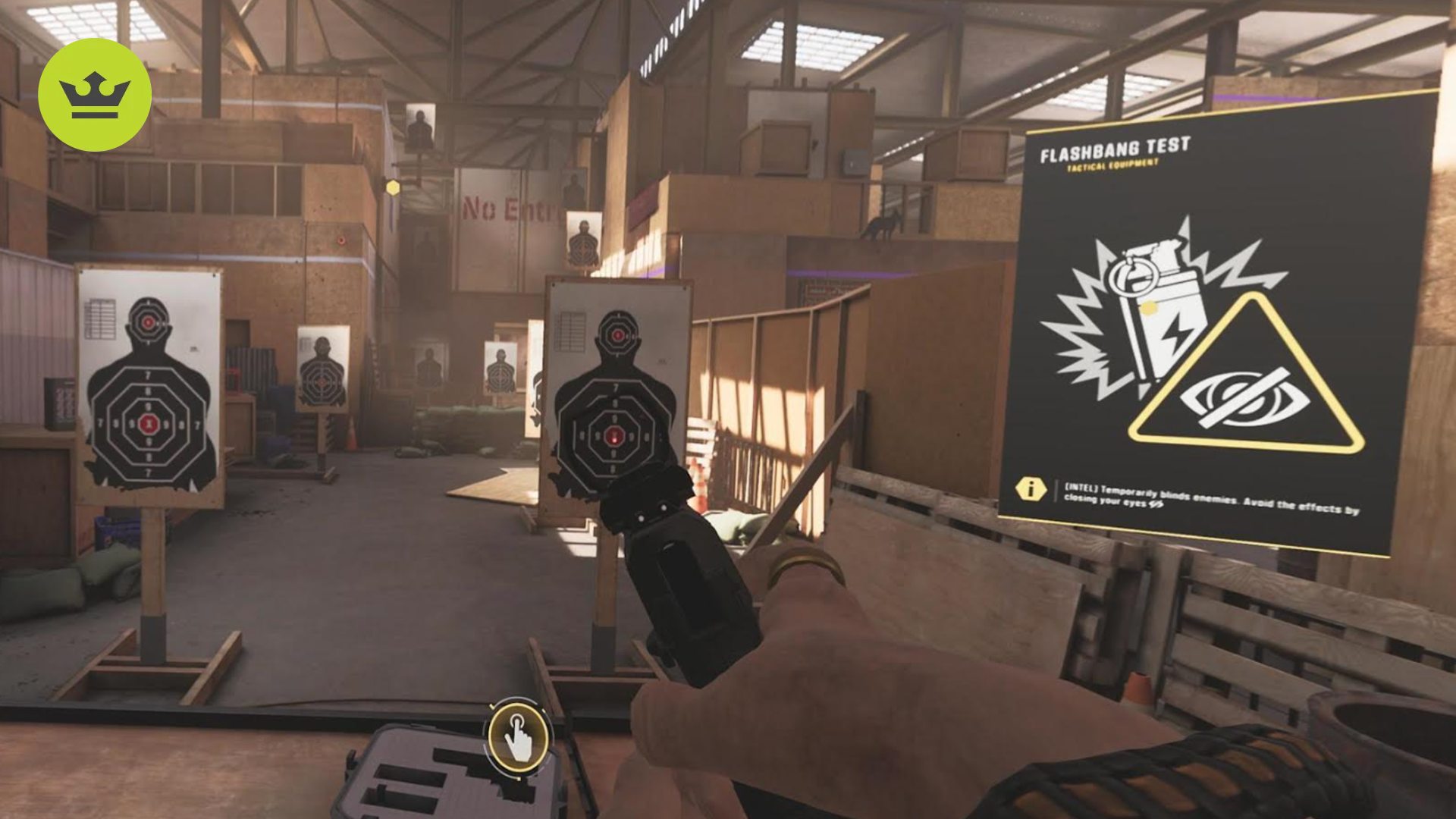Our Verdict
In spite of its creative use of the PSVR2’s eye-tracking feature, Firewall Ultra’s immersion-breaking control scheme, poor matchmaking, and questionable progression-based unlocks lead to an exercise in futility.
Firewall Ultra brings back the tense and frantic action that veterans have come to know from 2018’s Firewall: Zero Hour. This includes some rather innovative uses for the PlayStation VR2’s eye-tracking feature. Sadly, during the course of this Firewall Ultra review in progress, I also experienced a litany of issues that have soured the experience so far.
The game allows you to choose from various contractors and mercenaries with their own unique skills. Some are fairly new, while others are returning characters from the previous game. There’s newcomer Havoc, who’s more resistant to bullet damage, and he also happens to drop a mine once he’s taken out. Likewise, you’ve got Fang, who’s got a faster reload speed, and Nala, with her passive that prevents her from triggering enemy traps. One of my favorites, however, is Meiko, whose noise reduction perk makes her harder to detect.
From there, you can run the gauntlet and train in your hub, a safehouse of sorts where you spend your time in between matches. There’s an area where you can check out your weapon loadouts, which range from all sorts of rifles, shotguns, and pistols, as well as throwable items and explosives.

At the start, I marveled at Firewall Ultra’s crisp visuals, which manage to pull you in prior to every firefight. But, my disappointment with aspects of Firewall Ultra began to emerge after some time.
One of those is the control scheme. While the creative use of the PSVR 2’s eye-tracking feature allows me to zoom in with your scope by closing an eye is great, alongside being able to aim where I looked, it did feel somewhat janky at times as, even though I had my weapon out, aiming tended to be off-center. Worse, the use of button presses for certain contextual actions was downright baffling. For instance, opening a door meant that I had to look at the doorknob, bring out my left hand, and hold the L1 button. Using a grenade, meanwhile, required a similar process, which included selecting it from a menu via eye-tracking.
Being able to pinpoint where grenades and objects can be tossed is neat, alongside closing your eyes to avoid the flash of a flashbang. However, the lack of object and weapon interactivity in a VR game, along with a rather dated control scheme (sans eye-tracking), makes it more arcadey in that regard compared to some competitors like Pavlov VR which offer a more immersive experience.
Firewall Ultra offers two game modes: Exfil (PvE) and Contracts (PvP). In Exfil, your four-player squad has to hack various terminals, all while taking down numerous AI-controlled bots. Here’s the kicker: the AI is less tenacious and more downright broken from what I have played of the mode so far. There were instances when my team had already cleared a room, only to realize that bots reappeared behind us, in the same room with no other doorways. It’s as though there’s no rhyme or reason to how enemies spawned: they just popped up to add to the difficulty.
Contracts, meanwhile, is all about four-versus-four action, where squads need to win a best-of-three match-up. As a solo player, I mostly queued up in the hopes of joining a random squad, but this, too, had notable problems.
As of the time of this writing, Firewall Ultra received several patches that have addressed some of the issues. Most notably, the countdown in between matches has been decreased from two minutes to 20 seconds. This was certainly the most noteworthy change, as I was able to partake in multiple matches over the course of one weekend. However, it also bears mentioning that this only applies to groups that are ready or those that have just finished a match.
In short: if you’ve found a squad that’s raring to go, stick with them for as long as possible. You’ll never know if you’ll come across long wait times when you’re solo queued. The problems aren’t completely ironed out either, as there were a couple of instances when I waited for 10 minutes just to find a match, only to get an error that the lobby that I was attempting to join was already full – which shows matchmaking issues definitely aren’t fully fixed two weeks after launch.
Therefore, rather than speeding things up, players would sometimes leave due to the long queue times and countdown. In comparison to Pavlov VR, Firewall Ultra is only for PS5, which means there’s no crossplay support to boost its player population and it isn’t on any other VR headsets.
To add to this litany of woes, many weapons and items in Firewall Ultra are locked behind progression. Because of this, you’ll need to grind numerous public matches, as private/solo runs won’t give you XP. When compounded with a lack of players and long wait times, it certainly led to a frustrating endeavor.
Additionally, 100,000 crypto, the game’s basic currency, was rewarded to all players shortly after launch. This wasn’t enough to unlock a new operator—characters cost 150,000 crypto basic currency or 50 of the premium currency (which is equivalent to $5). Since a lot of weapons and attachments remain locked behind progression and assignments, it’s as though First Contact Entertainment expected the player base to remain engaged for prolonged periods. This seems unlikely due to the grindy nature of this progression and the lack of players and matchmaking issues I have already mentioned.
As such, Firewall Ultra still has potent lingering issues that hold it back from being one of the best PSVR 2 games available.




